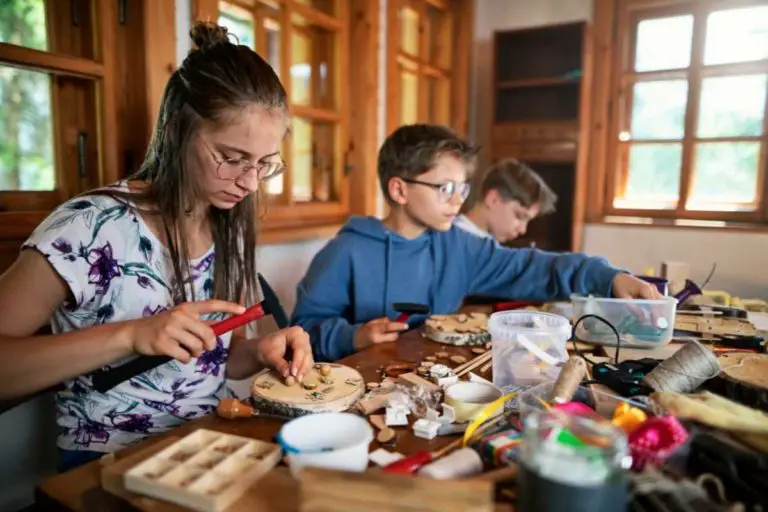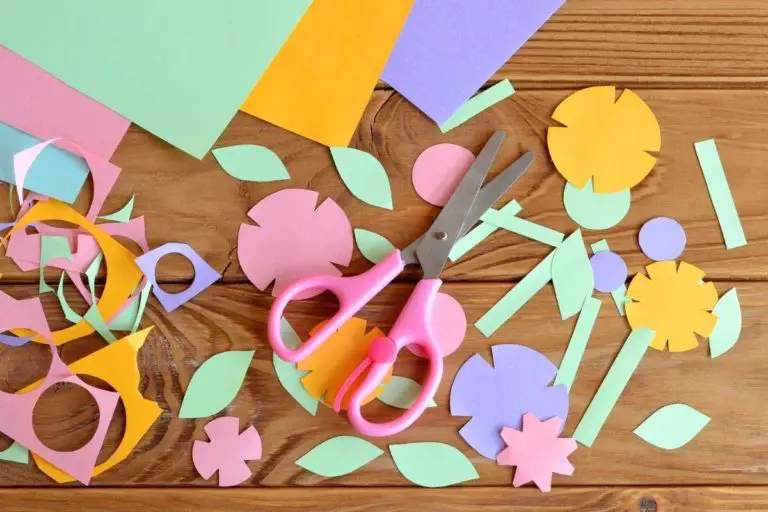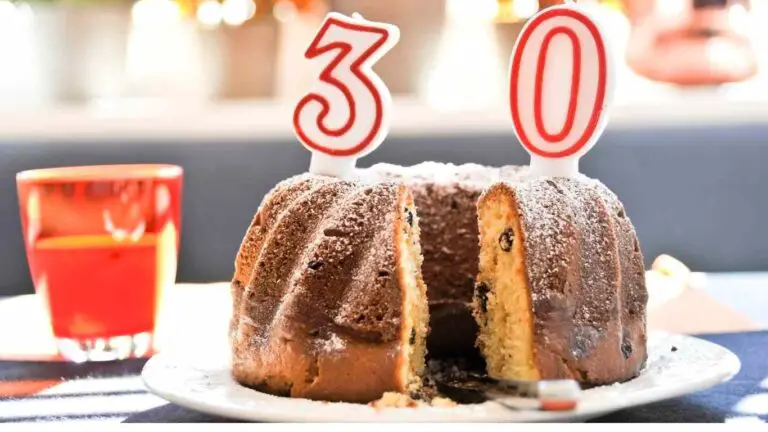How Long Should It Take To Do A 1000-Piece Puzzle?
It depends on the individual’s level of proficiency with puzzles, as well as the level of difficulty of the particular puzzle in question. However, on average, it is reasonable to expect that completing a 1000-piece puzzle would take several hours. A 1000-piece puzzle is a great family activity or can be perfect for a rainy day project. This puzzle will give hours of entertainment to those who love jigsaw puzzles. Puzzles are great for all ages!
How Long Should It Take To Do A 1000-Piece Puzzle?
Generally speaking, however, it should take anywhere from a few hours to a couple of days to complete a 1000-piece puzzle.
Some people may be able to complete a 1000-piece puzzle in a few hours, while others may take days or even weeks. Ultimately, it is up to the individual and how much time they are willing to dedicate to the puzzle.
Key Points at a Glance
- It typically takes between 5 and 10 hours to complete a 1000-piece puzzle.
- The time it takes to complete a puzzle can vary depending on the individual’s level of experience, the size and complexity of the puzzle, and other factors.
- Some people may be able to complete a 1000-piece puzzle in as little as 3 hours, while others may take up to 20 hours.
- There is no right or wrong answer, and the amount of time it takes to complete a puzzle is ultimately up to the individual.
How Many Pieces Are In A 1000-piece Puzzle?
A 1000-piece puzzle is a puzzle that is made up of 1000 pieces.
A 1000-piece puzzle is a great family activity or can be perfect for a rainy day project. This puzzle will give hours of entertainment to those who love jigsaw puzzles. Puzzles are great for all ages!
A 1000-piece puzzle is a fun and challenging activity, and while it’s one of the easiest puzzles to complete, there are still some things you have to think about before you get started. The first thing you need to figure out is how many pieces make up the puzzle. This is easy if you look at all of the little rectangle-shaped pieces laid out on the table in front of you: just add them up! There are 1,000 pieces in this jigsaw puzzle.
How Long Does It Typically Take To Complete A 1000-piece Puzzle?
The average person can complete a 1000-piece puzzle in about 10 hours.
It all depends on who you ask. Some people enjoy finishing puzzles quickly and efficiently, while others like to take their time and savor the experience.
We surveyed a number of puzzle experts and found that most agree that the average person takes around 10 hours to finish a 1000-piece jigsaw.
However, as with many things, there are exceptions to every rule. Some avid puzzlers can complete large-scale puzzles in under six hours, while other newbies may require upwards of 20 hours to work through a tough 500-piece puzzle. But our best piece of advice is this: Take your time! A completed challenge will provide countless hours of fun for years to come.
We asked puzzle novices, puzzle experts, and everything in between to answer the question: How long does it typically take to complete a 1000-piece puzzle?
Most answers were similar, falling into two categories:
- A few hours or less.
- It depends on the person.
Although no one provided an exact average, they all agreed that you can solve most puzzles in less than a week. The majority of responses fell into the second category because they agreed that how long it takes you to finish a puzzle will depend on how often you work on them, your level of patience, your persistence, and determination with challenges and other obstacles that may come up along the way.
What Is The Record For The Fastest Time To Complete A 1000-piece Puzzle?
The current world record for the fastest time to complete a 1000-piece puzzle is held by a man from the United States. His time of 4 hours and 17 minutes was set in 2013.
The record for the fastest time to complete a 1000-piece puzzle is held by Tony Filippone, who completed the puzzle in just over 19 minutes.
This is an incredible feat, considering the average person takes around 2 hours to complete a 1000-piece puzzle. Tony Filippone is a professional puzzle solver and has set numerous world records for puzzle solving.
The record for the fastest time to complete a 1000-piece puzzle is 5 hours and 41 minutes. This was achieved by Will Smith in 2020.
Will Smith is a professional puzzle solver and has been setting world records for puzzle-solving since 2015. He has also set the world record for the fastest time to complete a 2000-piece puzzle, which he did in 11 hours and 19 minutes.
When asked about his puzzle-solving abilities, Smith says that he “just has a knack for it.” He also says that he enjoys the challenge of trying to beat his own records.
What Are Some Tips For Completing A 1000-piece Puzzle Quickly?
Puzzles can be a fun and challenging way to spend some time, but they can also be frustrating if they take too long to complete. If you’re looking to complete a 1000-piece puzzle quickly, here are a few tips to help you out:
- Start by finding all the edge pieces and connecting them together. This will give you a border to work with and will make the puzzle easier to complete.
- Work in small sections. Once you have the border in place, work on smaller sections of the puzzle one at a time. This will help you stay focused and not get overwhelmed.
- Use a puzzle tray. A puzzle tray can be a helpful tool when completing a puzzle. It will keep the pieces in place and make it easier to work on smaller sections. With these tips, you’ll be able to complete a 1000-piece puzzle in no time!
- Work on one section at a time. Don’t try to tackle the entire puzzle all at once. Break it up into smaller sections and work on one at a time.
- Find the edge pieces first. This will help you to establish the borders of each section, making it easier to fill in the pieces.
- Pay attention to the colors and patterns. This will help you to quickly identify pieces that belong together.
- Don’t be afraid to ask for help. If you’re struggling to find a particular piece, ask a friend or family member for assistance. With a little patience and persistence, you’ll be able to complete that 1000-piece puzzle in no time!
What Are Some Of The Benefits Of Completing A 1000-piece Puzzle?
Some benefits of completing a 1000-piece puzzle include the feeling of satisfaction and accomplishment, improved problem-solving skills, and increased patience and concentration.
Additionally, working on a puzzle can be a relaxing and enjoyable activity that can be done alone or with others.
- Completing a 1000-piece puzzle can help improve your problem-solving skills.
- It can also help improve your hand-eye coordination and fine motor skills.
- Working on a 1000-piece puzzle can also be a great way to relax and de-stress.
- It can also be a fun and social activity to do with family and friends.
- Finally, completing a 1000-piece puzzle can give you a great sense of satisfaction and accomplishment.
how long does a 1000 piece puzzle take?
A 1000-piece puzzle can take anywhere from a few hours to a few days to complete, depending on the person’s level of experience with puzzles and how much time they are willing to dedicate to the task.
how long to finish a 1000 piece puzzle?
Assuming you would like a definition for the term “1000 piece puzzle”: A 1000-piece puzzle is a type of jigsaw puzzle that typically has between 750 and 1500 pieces. They are often larger in size than 500-piece puzzles, making them more challenging to complete.
Decoding the Puzzle: How Long Does It Really Take to Complete a 1000-Piece Jigsaw Puzzle?
When it comes to tackling a 1000-piece jigsaw puzzle, the time it takes to complete can vary significantly from person to person. Some puzzlers are known to breeze through it in as little as 3-4 hours, skillfully arranging each piece until the final picture emerges. On the other end of the spectrum, there are those who immerse themselves in the puzzle for more than 30 hours, meticulously navigating through the sea of pieces. However, the average completion time typically falls within the range of 4-10 hours, providing a moderate challenge that captivates puzzle enthusiasts.
For those with busy schedules, fear not! With a consistent dedication of just one hour per day, a 1000-piece puzzle can be conquered in as little as a week. By committing to this manageable timeframe, the puzzle gradually takes shape, piece by piece, bringing a sense of accomplishment and satisfaction with each session.
Of course, the completion duration can also depend on the complexity of the puzzle design and the puzzler’s experience level. Intricate and highly detailed puzzles may require more time, extending the process to a span of 20 to 40 hours. Nevertheless, even with such complex puzzles, many enthusiasts find themselves finishing in as little as four or five hours, driven by their passion and honed puzzle-solving skills.
The journey of assembling 1000-piece jigsaw puzzles is as much about the process as it is about the end result. Each piece taken and carefully placed brings a sense of anticipation and accomplishment, leading to the unveiling of the final masterpiece. So, whether you’re a seasoned puzzle aficionado or a casual enthusiast, remember that it’s not just about the time it takes but the joy and satisfaction that come from each moment spent with the pieces, creating a beautiful picture one step at a time.
Conclusion
In conclusion, how long it should take to do a 1000-piece puzzle depends on the individual and the level of difficulty of the puzzle. Generally, however, it should take anywhere from a few hours to a few days to complete a 1000-piece puzzle.
It is generally accepted that it should take somewhere between a few hours to complete a 1000-piece puzzle. This is based on the average person being able to do around 40-50 pieces per hour. However, there are many variables that can affect how long it will actually take you to do a 1000-piece puzzle. These include the size of the puzzle pieces, the level of difficulty, and your own personal skill level.







